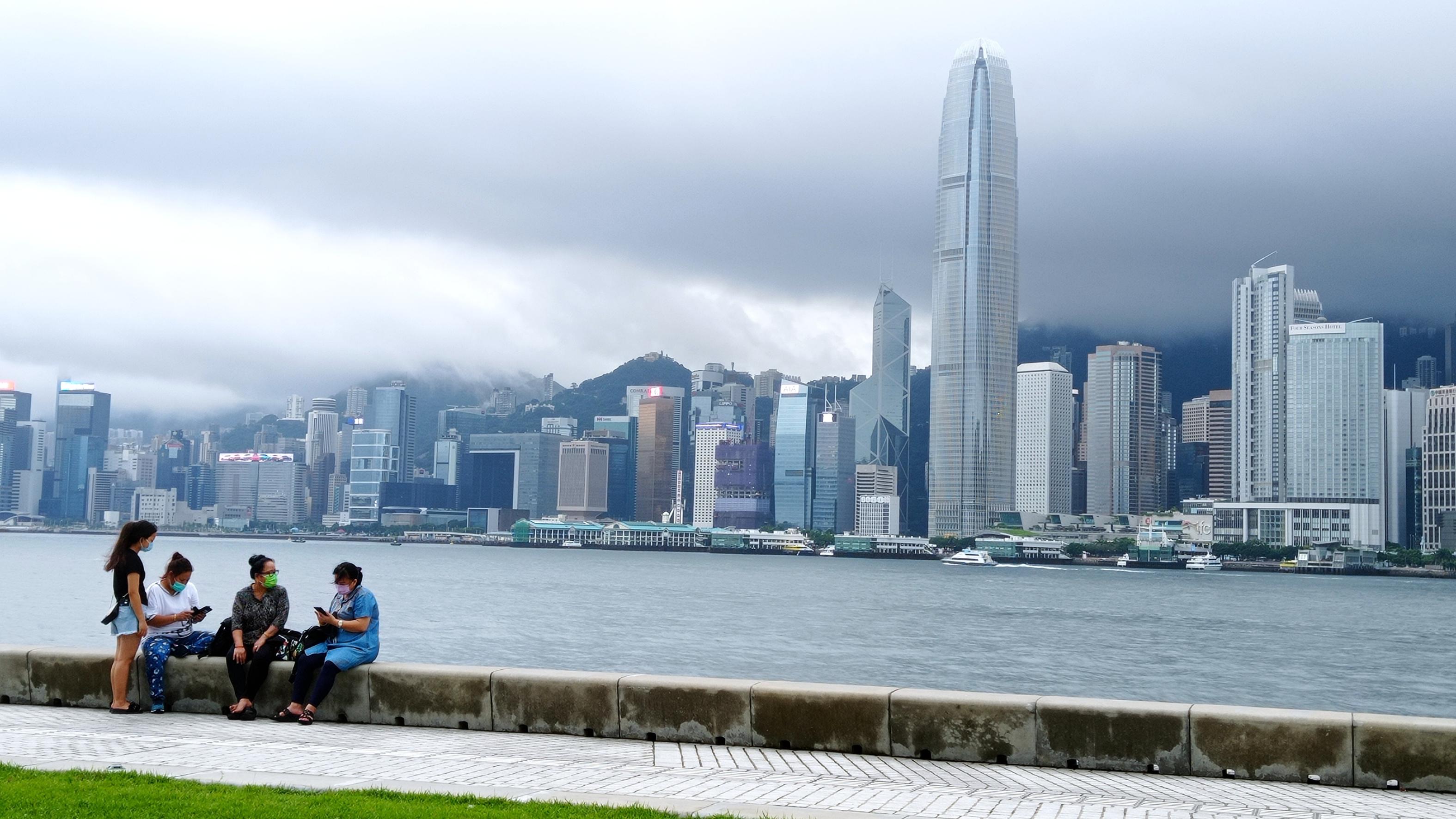 Visitors sit on the barrier in front of the Victoria Harbour the West Kowloon Waterfront Promenade in the West Kowloon Cultural District on June 14, 2022. (PHOTO / CHINA DAILY)
Visitors sit on the barrier in front of the Victoria Harbour the West Kowloon Waterfront Promenade in the West Kowloon Cultural District on June 14, 2022. (PHOTO / CHINA DAILY)
HONG KONG – As income of middle- and high-income households in Hong Kong showed an upward trend, a widening income disparity ensued, according to a research brief published by the Legislative Council.
The LegCo Secretariat released the research brief on "Characteristics of low- and lower-middle-income households" on Friday.
There were about 170,000 low-income and lower-middle-income households that were accommodated in private rental housing in 2021, hence inevitably impacted by rising rents of private flats, the secretariat said in a statement.
READ MORE: HK acts to narrow income-wealth distribution disparity
Among low-income households, the proportion of economically inactive households doubled over the past 25 years from 33.8 percent to 74.1 percent in 2021, representing 396,000 households, it added.
“An ageing population led to a significant increase in the number of all-elderly households between 1996 and 2021, from 86,000 to 253,000 (239,000 of which were economically inactive households),” reads the statement.
Among low-income households with non-elderly members, the number of economically inactive households also tripled from 50,000 to 157,000
Concurrently, among low-income households with non-elderly members, the number of economically inactive households also tripled from 50,000 to 157,000, it added.
The research found that the absence of employment earnings among economically inactive households was an important factor leading to stagnant income for low-income households, whose monthly income of the tenth percentile household actually declined about 17 percent from HK$5,700 in 2016 to HK$4,700 in 2021.
Meanwhile, among the 157,000 low-income, economically inactive households, there were some 200,000 household members who were of working-age but economically inactive, it added.
With various poverty alleviation policies implemented, the Hong Kong Special Administrative Region government expenditure on recurrent cash benefits grew significantly when compared with the 1996-1997 fiscal year, to HK$75.7 billion in the 2022-2023 fiscal year.
ALSO READ: Income gap in HK largest in 46 years
“Together with a number of new or enhanced recurrent cash benefit schemes launched by the government in recent years, the added expenditure on one hand somewhat offset the negative impact of reduced employment earnings of low-income households, but on the other hand raised much concern over the sustainability of social welfare expenditure especially when the relevant recurrent expenditure is set to become the largest among policy area groups by the 2023-2024 fiscal year.”


